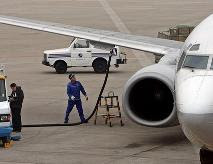
The Nigerian central bank has injected 400bn naira ($2.6bn; £1.6bn) into five banks and sacked their managers.
The regulator said the banks were undercapitalised and posed a risk to the entire banking system.
Governor Lamido Sanusi said Afribank, Finbank, Intercontinental Bank, Oceanic Bank and Union Bank would be run as normal until new investors were found.
The move was unprecedented in Nigeria, sending the naira down 2% to 156.9 versus the dollar.
'Questions'
"The banks have lost their money in bad loans," Mr Sanusi told reporters in Lagos. "We have questions about the management, so we have put in new management."
"We assure every depositor that no-one will lose money and we will continue to support the banks and all Nigerian banks," he said.
Armed police secured the buildings of the five banks to protect their assets.
Mr Sanusi took over as head of the central bank over two months ago, pledging to clean up the banking system that has fuelled growth in Nigeria.
Among the executives removed were senior members of Nigeria's corporate elite, long seen as almost untouchable by the political establishment.
"The banking sector is a critical part of any economic system and we believe the steps being taken will deliver an effective solution to a very serious set of challenges," said Michael Hugman, a strategist at Standard Bank.
The five institutions account for 40% of banking sector credit in Nigeria.
Bad loans
Mr Sanusi said the five banks had accounted for almost 90% of exposure to the central bank's so-called discount window, which allows banks to borrow in the short-term from the central bank to meet their needs.
"The excessively high level of non-performing loans in the five banks ... was attributable to poor corporate governance practices, lax credit administration processes and the absence or non-adherence to credit risk management practices," he said.
Mr Sanusi added the Nigerian government had no intention of nationalising the five banks and that this was a temporary measure.
The central bank has completed audits of 10 banks, including the five being rescued, and the Central Bank of Nigeria will now probe all of the country's 24 banks, Mr Sanusi said.

